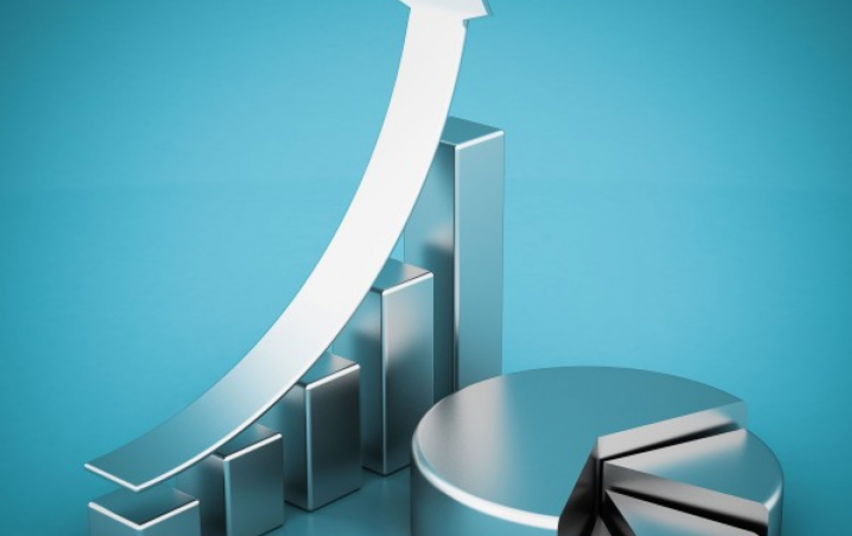Having lowered the price of electricity and gas transmission services for Lithuania’s consumers, the state-run energy transmission and exchange group EPSO-G earned 111.1 million euros in income over the first six months of 2017. This is 6.6% less than the group’s earnings in the first half of the previous year, when the group’s consolidated income reached 118.9 million euros. The impact of lower state-regulated service rates on the group’s financial results were mostly mitigated by the growing scale of transmission operations and lower operational costs. During this period, EPSO-G’s financial liabilities decreased by 35.4 million euros.
Since 1 January 2017, EPSO-G companies have been providing services to Lithuania’s residents at a lower price: the average price for the transmission of electricity decreased by 2.75%, falling to 0.672 cents per kilowatt-hour, while the average price for the transmission of natural gas decreased by 7.8%, falling to 1.78 euros per megawatt-hour.
“As the national economy grew and manufacturers’ exports increased, demand for both electricity and gas transmission services increased accordingly. This is a positive trend – the more effectively we use the energy transmission infrastructure at our disposal and energy links with our neighbours, the better the price we can offer to both Lithuania’s residents and businesses. The benefits of electricity links with our neighbours to the competitiveness of the country’s economy is now apparent, which is why we are heading in the same direction with the gas market by actively setting up for a gas exchange in the Baltic states,” explained Rolandas Zukas, the CEO of EPSO-G.
From 1 June, along with the launch of an indirect capacity distribution model, two gas trading locations were set up in Latvia and Estonia, and EPSO-G’s GET Baltic trade platform, having submitted the winning proposal, went regional. The application of this model allows service providers from all three Baltic states to actively compete as they trade on the exchange, and this, according to the CEO of EPSO-G, will have a positive impact on the country’s gas consumers.
Growing demand for services and competitive prices
In the first six months of 2017, electricity consumption in Lithuania increased by 2.67% compared to the first half of 2016, amounting to 5.3 TWh, while prices remained competitive compared to those offered in the other Baltic states.
The difference between Lithuania’s and Sweden’s wholesale electricity prices in the fourth trade zone decreased by a factor of 3.5 compared to the first half of 2016. In the first half of 2017, the average price of electricity on the Nord Pool exchange in Lithuania’s trade zone was EUR 34.5/Mwh – nearly a 5% drop from the first half of the previous year. This is the lowest half-year price for electricity since Nord Pool began operations in Lithuania.
A similar trend in consumption could be observed in the gas sector as well: during the first six months of this year, the amount of gas transmitted to Amber Grid wholesale consumers rose by 4.5% compared to the same period in the previous year. Lithuania’s consumers received 36% of the necessary gas from the liquefied natural gas terminal in Klaipėda. The greatest growth in natural gas consumption occurred in the fertiliser industry. The scale of natural gas transportation to Russia’s Kaliningrad Oblast also grew by 11% compared to the first half of 2016.
Income and expenditure
In the first half of 2017, the consolidated income of EPSO-G companies amounted to EUR 111.1 million. A 3.2% increase in the amount of electricity transmitted compared to the same period last year meant that transmission incomes increased by 0.9%, reaching 34.0 million euros and amounting to 30.6% of all EPSO-G income. Income from natural gas transmission in the first half of 2017 amounted to 29.2 million euros. Compared to the first half of 2016, they decreased by 2.4% and made up 26.3% of the group's consolidated income.
On 1 January 2017, the National Commission for Energy Control and Prices set a price rate for systemic services that was 11% greater than before, resulting in a 15.3% increase of income from systemic electricity services and amounting to 21.4 million euros. Income from regulatory electricity sales decreased by 33.2% to 8.3 milion euros. This was mostly influenced by decreasing demand among regulatory energy providers and more reliably operating inter-system links.
The group’s operational costs over the first six months of 2017 amounted to 91.5 million euros. This marked a decrease of 3.9 million euros compared to the same period of the previous year. The acquisition of energy resources and related services accounted for the largest share of costs, amounting to 42.2 million euros.
Performance
In the first half of 2017, net profit amounted to 14.7 million euros, 19.4% less than in the first half of 2016, when the group made a net profit of 18.2 million euros. Profits from the group’s main activity, compared to the same period last year, remained stable, and were mostly impacted by income from 4 million euros in delay penalties, which had increased in 2016 due to delays in the NordBalt project.
The group’s operational earnings before interest, taxes, depreciation, and amortization (EBITDA) during the first six years of 2017 amounted to 40.2 million euros. Compared to the same period of the previous year, EBITDA decreased by 11.9%. The EBIDTA margin for the first half of 2017 was 36.2% (38.4% in the first quarter of 2016).
Decreasing debt
During the first six months of 2017, EPSO-G managed to decrease its financial liabilities with respect to the shares of its subsidiary Litgrid significantly faster than the established payment time frame requires. The 35.4 million euros transferred to the government-run company Lietuvos Energija based on an agreement between the ministries of energy and finance, will be injected into the national budget.
As of 30 June 2017, the group's assets were valued at 1,053.2 million euros.

